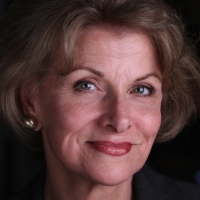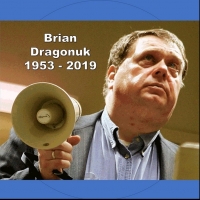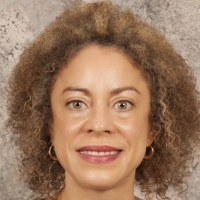Whenever I see some big star or director interviewed about their careers, what often jumps out at me is how few of them said that they first went to film school. Not that there's anything wrong with going to film school, a good film school can be terrific, it's just that many of them started out on a different career path altogether. Then they fell into some aspect of filmmaking on the periphery and then....they met someone! And that meeting put them on the path to making movies.
What it underscored for me is the importance of getting out where you can meet others in the business and where they can actually see you and talk to you. Getting out and meeting people is referred to as "networking," and actors get a lot of advice on how to do that, usually involving dropping your card on someone in the business or sending them your headshot/résumé. Let me suggest a few ideas more likely to work, and some things to avoid. Understand that all of these work together, so the more you adopt the more likely you are to succeed.
DO Remember That You're Auditioning Every Moment of Your Life: You never know who you are talking to or who is observing you. A new writer at my day job in Washington turned out to be the father of an executive producer at Temple Hill Entertainment, which makes the gazillion-grossing Twilight films. I met the father of TV screenwriter David Wilcox in an Alexandria, Virginia, McDonald's (I was reading a book on acting and he stopped to chat.) An actor I met working on an industrial turned out to be the son of Sidney Blackmer, one of the stars of the old horror film Rosemary's Baby. The point here: always look your best, be on your best behavior, and let everyone you meet know that you're an actor. You never know what connections they may have.
DON'T Discuss Politics or Religion: Or post on it to the Internet. There's a scene in Casablanca where Humphrey Bogart excuses himself from a table, saying "Gentlemen, your business is politics, mine is running a saloon." Well, an actor's business is acting, not public policy or proselytizing. All your friends may agree with you, but the director important to your career may not. You won't know. Talk about film and stage work and keep your other views private.
DO Attend Gatherings Where You'll Meet Others in the Business: Film festivals certainly, but also workshops, union meetings, special screenings, holiday parties. Be complimentary. Stay sober. This Fall I've been trying to attend more SAG-AFTRA union meetings and small-group SAG-AFTRA workshops. The workshops are free, give everyone a chance to stand at the front of the room at some point, and are usually led by someone better known in the business than I am. It's an opportunity to meet other people in a relaxed environment. If you make an impression, they'll know how to get in touch.
DO Develop a Signature Image: If an actor friend needed to point you out to a big-name director across a crowded room, how would he describe you? Michael Caine, early in his career, adopted black, large-frame glasses and a cigar, so he was "that tall, blond guy with the glasses and the cigar." It doesn't have to be odd - it can be a color or article of clothing or style of dressing - but it does have to make you stand out, hopefully in a way that relates to your type. Which leads to the next point...
DON'T Get in the Habit of Wearing a Three-Day Beard: Actors with short, dark hair and a three-day growth of beard are ubiquitous in Hollywood. That look makes a male undistinguishable from hundreds of others. Bad move.
DO Look Like a Star: Television casting director Geoffrey Soffer made this point at a workshop I attended last year. People in the business who meet you are not just considering you for a role, they're also wondering if your presence will help sell the film and how you'll look and sound at all those interviews and promotional events you'll be expected to participate in. Don't arrive at an audition in cutoffs and flip-flops. If you're a woman, don't show up at a public gathering with no make-up and wearing an ill-fitting bra or head-to-toe spandex. I've seen all of that and worse.
DO Develop a Reputation for Being Easy to Work With: As the saying goes, arrive on time, know your lines, and be kind to the crew. Ask what more you can do to help make the film a success. Can you help find a location? Can you provide props? Can you give someone a ride to the location? On large productions you can't be as helpful without stepping on union toes, but you can always say "Yes, I'll come in early, work late, work all night. Please, do as many takes as you need. And, yes, I'll be there for the premiere and any promotional events you have planned." If you establish a reputation for being easy to work with, directors remember you and may ask for you again. (Be wary of doing any risky stunts, however, especially in the last few days of filming.)
DO Consider Working in Student Films: Film students not only know and understand the process of making a film but they also arrive with a ton of expensive equipment - lights, sound, monitors, big cameras - which raises the odds that you'll get a good clip for your reel. They also have great contacts in the film industry.
DON'T Throw Headshots at People: Especially in public places, since they won't have any place to put them. If they seem interested in you based on your thorough knowledge of their work, ask them if you can send a headshot/résumé and then get their card.
DO Become a Valuable Resource: Think of some way you or your contacts can help their project. Put them in touch with someone who can provide a production-related service that they need. Suggest a terrific actor who doesn't directly compete with you. When I'm cast in a film or play, I save the contact information for all of the cast and crew into my IPhone with a note about the production and each person's role. Later if I see something they'd be great for, I make sure they know about it. I send them the posting or put them in contact with the director. If a director asks for suggestions for filling a role, I can usually come up with 6-8 actors that fit the age-range and type they're looking for.
DO Get to Know Your Crew: The great actress Joan Crawford was on a first-name basis with all of the guys in the crew and reportedly treated them better than she treated her kids! There's a reason for this: (1) they make you look good on camera and (2) they have great contacts. People who crewed a student film I did three years ago are now working on major motion pictures. Remember their names. Stay in touch.
DO Share the Glory: This is where you practice your Oscar acceptance speech. If you post a screenshot from your latest film online, be sure to identify all of the actors in the shot. If a film you were in wins an award, spread the word, but remember to mention and praise the writer, director, and stars. If you post about it, include links to the production company and all major players. A lot of people in the business subscribe to Google Alerts that notify them when their name is mentioned online, so they'll see it. Actors who are always "me, me, me" are off putting and self-limiting.
DO Remember to Use Your Photo Notecards Effectively: Yes, use them to tell the casting agency what you've been up to, but also use them to say Thank You, compliment someone on an award, pass along a contact, etc. They are note cards; write notes.
DO Remember to Say "Thank You": Thank the writer, thank the director, thank members of the crew. When casting agency people put me in a film, even if it's just background, I follow up afterwards with a thank you note and a paragraph telling them how it went. You'd be surprised how few people say thank you. Just doing that will set you apart.
Finally.....
DO Remember What It Is You're Selling: Yourself, as an actor. About 75 percent of union actors need a side job to make ends meet. But if you're using your acting contact list to sell a side product or service, then you're not an actor, you're a retailer. You get the picture. Stay focused on your goal. I write to make money, but I write under a different name and keep my writing contacts completely separate.
These are just a few ideas I've picked up over the years. I'm sure there are many more tips out there on how actors can connect. If you have one you'd like to share, please add it on.



